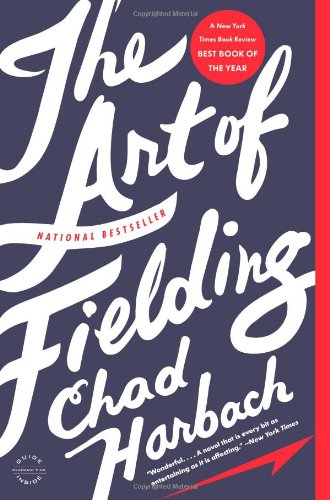The Melville allusions in The Art of Fielding are heavy-handed and very deliberate -- the campus novel is about a baseball short-stop who seeks an NCAA record with his college team, The Harpooners, at a small liberal arts college on the shore of Lake Michigan which re-branded itself around Melville. when a student discovered that Melville had visited the campus as part of a lecture series. Ostensibly its a novel about college baseball, but only in the sense that baseball is about the human condition. Harbach was an English major at Harvard, so a fair amount of literary allusions, some more subtle than others, work their way into the text.
The Art of Fielding received an extraordinary amount of press when it was finally published, after Harbach spent ten long and arduous years perfecting his debut novel (worth every second). If you somehow missed it the first time around, pick it up immediately, as it was one of the best reviewed books of 2011 and absolutely one of my favorite recent reads. I recommend it just about everyone, regardless of their level of interest in baseball. This is a book for those who like good writing and distinctly American fiction.
I'd love to include a photo of my own for this post, but my copy is utterly destroyed from an incident involving a rickety table, a full glass of red wine, and two excitable dogs.
















